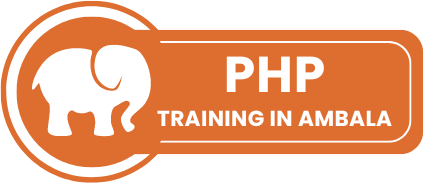PHP has carved a dominant niche in web development, but with a vast landscape of programming languages, is it always the best choice? This guide explores PHP's strengths and weaknesses compared to other popular languages, helping you make informed decisions for your next project.
The PHP Powerhouse:
PHP shines in several areas:
- Web Development: Its syntax is designed for web development, seamlessly integrating with HTML and databases like MySQL. Frameworks like Laravel and Symfony further enhance its capabilities.
- Rapid Development: PHP's relatively simple syntax allows for quick prototyping and development, ideal for projects with tight deadlines.
- Large Community: PHP boasts a massive and active community, providing extensive documentation, tutorials, and readily available libraries for various tasks.
Considering the Alternatives:
While PHP excels in web development, other languages offer advantages in specific areas:
- Python: Known for its readability and focus on clean code, Python is a great choice for data science, machine learning, and backend development.
- Java: For large-scale enterprise applications requiring robust security and scalability, Java reigns supreme. Its object-oriented nature promotes maintainability in complex projects.
- JavaScript (with Node.js): JavaScript, traditionally used for front-end development, is making waves on the backend with frameworks like Node.js. It excels in real-time applications and offers a unified language for both sides.
Choosing the Right Tool:
The ideal language depends on your project's specific needs. Here's a breakdown to guide your decision:
- Simple Websites and Web Applications: PHP shines for its ease of use and rapid development capabilities.
- Data-Driven Applications: Python's focus on data analysis and machine learning makes it a strong contender.
- Enterprise Applications: Java's security, scalability, and object-oriented features are well-suited for large and complex projects.
- Real-Time Applications: JavaScript with Node.js offers a compelling option for applications requiring instant updates and interactivity.
Beyond the Basics:
- Team Expertise: Consider your team's existing skillset. Leveraging existing knowledge in a particular language can save time and resources.
- Project Requirements: Evaluate your project's functional needs, performance requirements, and scalability demands to identify the best fit.
- Future-Proofing: Explore the language's adoption rate, community support, and future advancements to ensure its long-term viability for your project.
The Bottom Line:
PHP remains a powerful and versatile language for web development, but it's not a one-size-fits-all solution. By understanding its strengths and limitations, and carefully considering the alternatives, you'll be well-equipped to choose the right language for your next project, ensuring success and a smooth development journey.
WordPress Mastery: A Beginner's Comprehensive Guide
- Fixing the WordPress .htaccess File: A Beginner's Handbook
- Creating a WordPress Disaster Recovery Plan: Expert Tips
- Building a Classified Ads Website with WordPress: Step-by-Step Guide
- Reaching Out to WordPress Support: A Complete Beginner's Handbook
- 11 Essential Tips for eCommerce Website Maintenance
- Easy Methods to Repair Your WordPress Database
- Understanding the theme.json File in WordPress and Its Uses
- Google AI Overviews (SGE): 7 Essential Tips for WordPress Users
- 302 Redirect vs 301 Redirect: Explained Best Practices
- 7 Tips to Prevent WordPress SQL Injection Attacks
- Amazon FBA vs. Dropshipping: Choosing the Best for Your Online Store
- Boost Your Rankings: The Ultimate WordPress Local SEO Guide
- Content Syndication in WordPress: A Beginner’s Handbook
- 6 Crucial WordPress Server Requirements You Need to Know
- Starting an Online Thrift Store with WordPress in 2024
- WordPress for Enterprise: 6 Must-Know Tips
- Manual WordPress Database Backup: Step-by-Step Instructions
- Using Git with WordPress: A Beginner’s Guide
- Renewing Your Domain Name: A Guide for Major Hosting Registrars
- Creating a Social Media Website with WordPress: A Beginner’s Guide









